Wishlist #18; More Decent Filtered Bottles
Bottle conditioned beers can be a thing of wonder. Living yeast allows further conditioning and/or fermentation and so preserves the beer and possibly adds to its complexity of flavour and aroma. Indeed, some bottles won’t reveal their intended characteristics until after a lengthy ageing period.
But that doesn’t mean that non-conditioned bottles should be written off. Yes, they’re too often the last resting place of poor beers that have had the last vestige of life pasteurised out of them, but that doesn’t have to be the case. Beer can be filtered instead, perhaps even centrifuged, to remove yeast rather than having it burnt out. The challenge lies in maximising the flavour and aroma, making sure that volatile hop nuances aren’t lost in the process.
Thornbridge are looking to introduce a range of beers, carbonated in the tank, that will be centrifuged to as low a yeast count as possible before topping up carbonation as a "bright beer" before bottling. They’re likely to do that for beers best drank fresh, those with lower ABVs and highly hopped beers. Brewdog are investing in light-filtration techniques that will preserve the intense flavours and aromas found in their beers.
I want to see UK brewers learn from continental and US production methods and develop innovative ways of bottling beers with a decent shelf life that's still chock full of tasty goodness.
But that doesn’t mean that non-conditioned bottles should be written off. Yes, they’re too often the last resting place of poor beers that have had the last vestige of life pasteurised out of them, but that doesn’t have to be the case. Beer can be filtered instead, perhaps even centrifuged, to remove yeast rather than having it burnt out. The challenge lies in maximising the flavour and aroma, making sure that volatile hop nuances aren’t lost in the process.
Thornbridge are looking to introduce a range of beers, carbonated in the tank, that will be centrifuged to as low a yeast count as possible before topping up carbonation as a "bright beer" before bottling. They’re likely to do that for beers best drank fresh, those with lower ABVs and highly hopped beers. Brewdog are investing in light-filtration techniques that will preserve the intense flavours and aromas found in their beers.
I want to see UK brewers learn from continental and US production methods and develop innovative ways of bottling beers with a decent shelf life that's still chock full of tasty goodness.













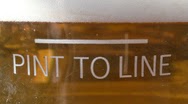
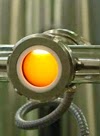
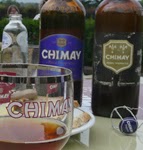
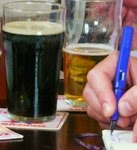
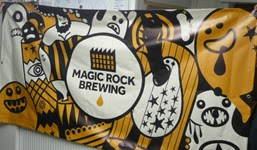

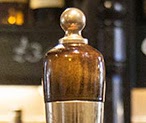

I have a stout that was put in bottles for me. It was chilled and then lightly filtered before being lightly carbonated. It's over 12 months mature and is great.
ReplyDeleteOf course, the beer was good to start with......
You make a good point. Relatively low abv bottle conditioned beers with a large amount of hops in have a very short shelf life, in terms of haze formation and hop character etc. These beers COULD indeed benefit from being filtered. Of course filtering will affect beer flavour and hop intensity. However, you couldn't say that Hardcore IPA lacks hop aroma, and anyone who's tried a Stone IPA etc etc. Most of the supermarket crap that's not bottled conditioned was dross before it began its journey into bottle. They tend to have sod-all hops in them and very little flavour anyway.
ReplyDeleteMost UK craft brewers can't afford even a basic filter though, and this means contract bottling; a whole new kettle of fish. Who's the most trustworthy bottler? I think it's down to each individual brewer to find what suits them and their beers...after all we're all (relatively) different. Intra-brewery Tests and experiments is the way forward. Bottle condition yourself, then get some done by someone else, both bottle conditioned and filtered versions. See what you think.
But I think pasteurisation should be left alone. Pasteur himself declared that whilst pasteurisation was fine for simple products like wine and milk, it simply wasn't suitable for complex products like beer.
Ah yes, you're in Proper Real Keg territory now. I don't think light filtering has that much effect on beer. It's when you filter the shit out of it, then pasteurize it that the flavor goes to shit. Filtering without pasteurization is key. Although some Proper Real Keg is never filtered, just pushed with extraneous co2.
ReplyDelete